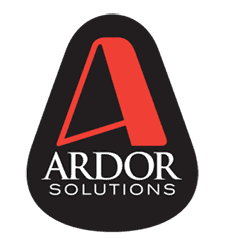
When managing a warehouse space, the industrial flooring type used can maximize function or hinder your workflow. If you’re looking to optimize your warehouse space, make sure you start with the right base.
Warehouse Flooring Types That Maximize Workflow
Consider everything that happens on your warehouse floor on a day-to-day basis. Workers operate heavy machinery, transport and store bulky items, and sometimes accidentally spill chemicals on the warehouse floor during their workday. If your flooring material is porous, slippery, uneven, or weak, your warehouse function will suffer. The wrong floor can pose a threat to your employees’ safety, absorb unsightly stains and harmful chemicals, and give clients a bad impression of your business.
Depending on how you use your warehouse, there are two great options for durable and cost-effective industrial flooring. When deciding on the floors for your space, consider the design and layout, the weight the floors must withstand, and the amount of foot traffic present. After you install the right floors, you’ll see how much they impact the efficiency of your warehouse space. Two ideal flooring options for warehouse spaces are concrete and epoxy.
Polished Concrete Flooring Options
When thinking about the most affordable commercial warehouse flooring material, concrete usually comes to mind. Though it’s cost effective and long-lasting, the issue with untreated concrete is its porosity. Basic concrete flooring absorbs toxic chemicals and stains, making it unsightly and difficult to clean. Luckily, there’s an easy fix for this issue: polished concrete.
When a concrete slab is mechanically polished, it becomes a non-porous, slip-resistant, seamless surface—perfect for a warehouse. However, chemicals and acids can still eat away at concrete flooring, so it’s not ideal for warehouses that frequently experience chemical spills.
Warehouse Epoxy Flooring Options
If you need a warehouse floor that can withstand chemical spills and cleans easily, epoxy resinous floors are right for you. Epoxy is a highly durable floor coating for concrete that can even be used to level uneven concrete slabs, making it an ideal option for food and beverage manufacturers.
If you’re looking for the most affordable warehouse flooring option, epoxy probably isn’t the ideal choice for you. Epoxy coating is significantly more expensive than polished concrete. Additionally, epoxy coating can chip over time and requires more frequent maintenance than polished concrete.
More Industrial Flooring Types for the Warehouse
Polished concrete and epoxy-coated concrete floors are two standout options for warehouses because of their durability and even surface. However, there are additional options that you can combine with concrete and epoxy flooring systems to maximize function. These include:
- Urethane cement: Traditional concrete floors are susceptible to staining and corrosion. However, when urethane is mixed into standard cement, it protects the flooring from absorbing liquid and harboring bacteria. Urethane cement can be paired with epoxy coating to create an impermeable, heat-resistant surface.
- Urethane coatings: While epoxy is a perfect industrial floor coating, it can be costly to install. A similar and more affordable floor option is urethane coating. Urethane has the same ability to withstand chemical spills and resist wear and tear but isn’t ideal for covering stains or leveling uneven floors.
- Quartz and flake systems: If you’re searching for attractive warehouse floors, quartz and flake systems are a great option. You have infinite color choices and the chance to add plastic or metallic flakes for a sparkling finish. Quartz and flake systems are ideal if you want presentable floors without sacrificing durability.
Maximizing Your Industrial Floor Design
You can choose a great floor option for your warehouse, but you may lose out on the benefits you expected to see if the design is lacking. Without consulting a flooring expert on the thickness, reinforcement, and coating of your warehouse floors, you may end up with a stained, cracked, and uneven floor in a few months.
When your warehouse floors function properly, you shouldn’t have to think about them very often. Smooth, even floors won’t trip up workers or hinder warehouse function. Additionally, the right base only needs maintenance every few years, whereas a poorly designed floor can be costly and time consuming to repair. Consider the time and money you could save by only shutting down the warehouse for floor repairs every few years instead of every few months.
Customized Warehouse and Factory Flooring Options
If you’re unsure how to choose the right flooring option for your warehouse, our flooring experts at Ardor Solutions will assess your needs and guide you through the installation process. With over 15 years in the industrial flooring business and a central headquarters location in Oklahoma, our team can handle any warehouse flooring project throughout the country. If you’re ready to hit the ground running on your flooring project, contact us today to schedule a free needs assessment.


